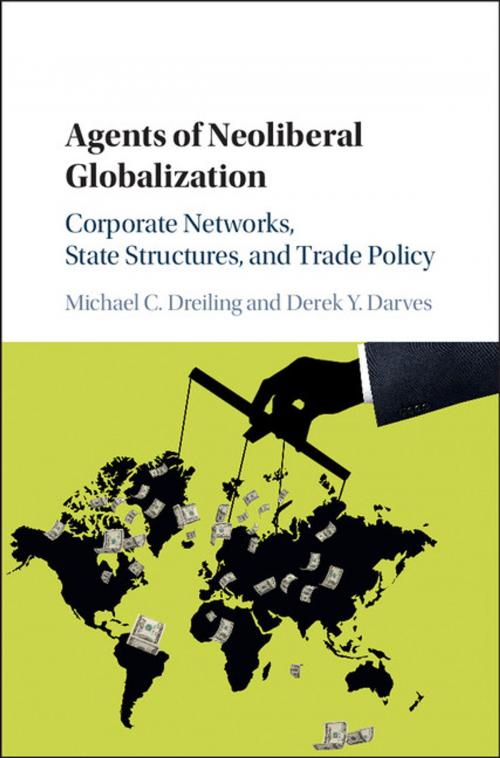Agents of Neoliberal Globalization
Corporate Networks, State Structures, and Trade Policy
Nonfiction, Social & Cultural Studies, Social Science, Sociology, Political Science| Author: | Michael C. Dreiling, Derek Y. Darves | ISBN: | 9781316789391 |
| Publisher: | Cambridge University Press | Publication: | September 26, 2016 |
| Imprint: | Cambridge University Press | Language: | English |
| Author: | Michael C. Dreiling, Derek Y. Darves |
| ISBN: | 9781316789391 |
| Publisher: | Cambridge University Press |
| Publication: | September 26, 2016 |
| Imprint: | Cambridge University Press |
| Language: | English |
Depictions of globalization commonly recite a story of a market unleashed, bringing Big Macs and iPhones to all corners of the world. Human society appears as a passive observer to a busy revolution of an invisible global market, paradoxically unfolding by its own energy. Sometimes, this market is thought to be unleashed by politicians working on the surface of an autonomous state. This book rejects both perspectives and provides an analytically rich alternative to conventional approaches to globalization. By the 1980s, an enduring corporate coalition advanced in nearly synonymous terms free trade, tax cuts, and deregulation. Highly networked corporate leaders and state officials worked in concert to produce the trade policy framework for neoliberal globalization. Marshalling original network data and a historical narrative, this book shows that the globalizing corporate titans of the late 1960s aligned with economic conservatives to set into motion this vision of a global free market.
Depictions of globalization commonly recite a story of a market unleashed, bringing Big Macs and iPhones to all corners of the world. Human society appears as a passive observer to a busy revolution of an invisible global market, paradoxically unfolding by its own energy. Sometimes, this market is thought to be unleashed by politicians working on the surface of an autonomous state. This book rejects both perspectives and provides an analytically rich alternative to conventional approaches to globalization. By the 1980s, an enduring corporate coalition advanced in nearly synonymous terms free trade, tax cuts, and deregulation. Highly networked corporate leaders and state officials worked in concert to produce the trade policy framework for neoliberal globalization. Marshalling original network data and a historical narrative, this book shows that the globalizing corporate titans of the late 1960s aligned with economic conservatives to set into motion this vision of a global free market.















